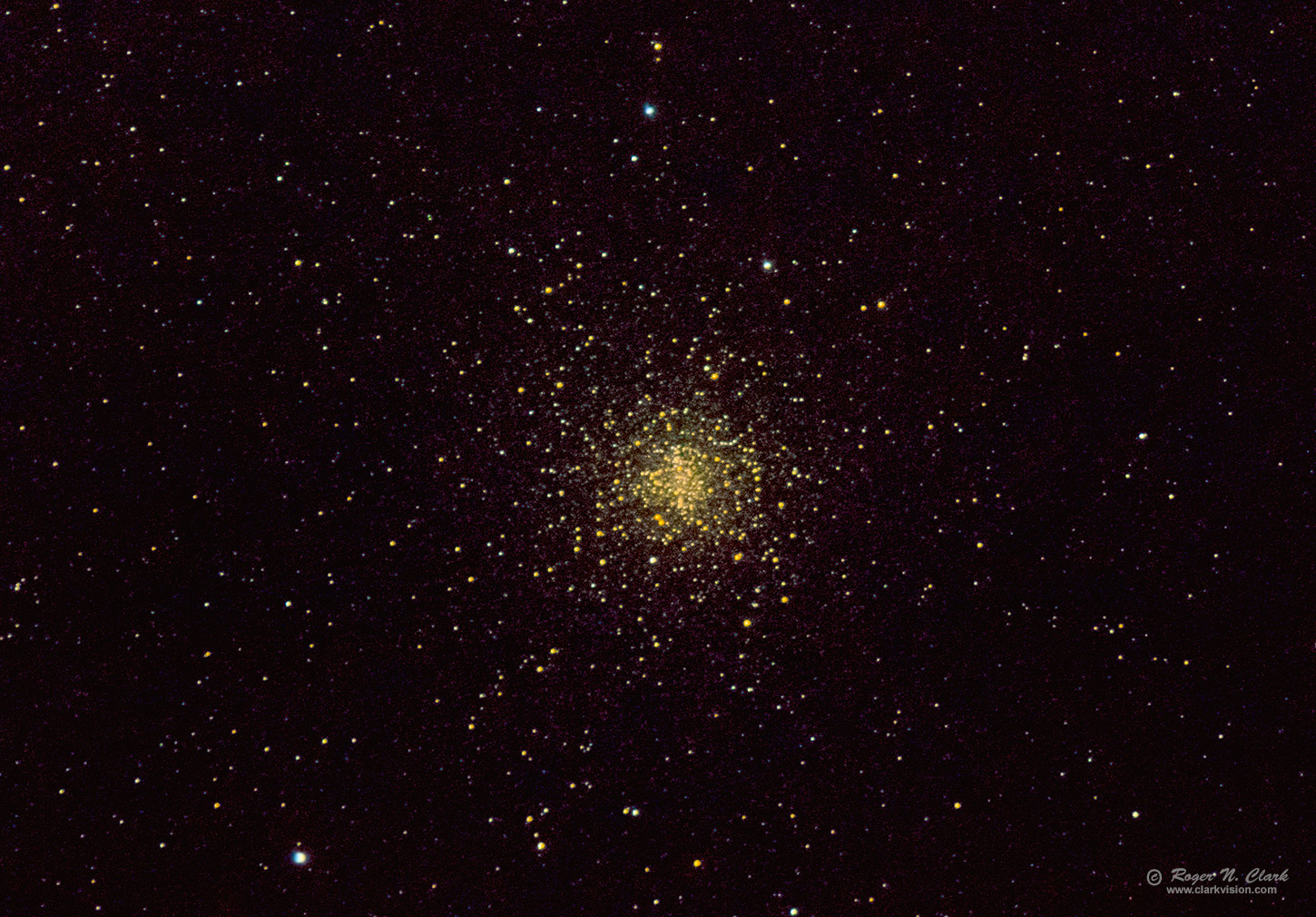| Home | Galleries | Articles | Reviews | Best Gear | New | About | Contact | Gallery Index | Previous |
Next |

| Home | Galleries | Articles | Reviews | Best Gear | New | About | Contact | Gallery Index | Previous |
Next |

M4 is a beautiful globular cluster in amateur telescopes. Most of the stars in the cluster are yellower and redder than our sun. The vertical "bar" of stars is easily seen in amateur telescopes. The faintest stars in this image are between 16.8 and 17.0 so the view is similar to that seen in about a 16 to 18-inch telescope. The cluster is in the area of nebulosity and the faint red background is hydrogen emission.
Technical. This image was obtained with a stock Canon EOS 90D DSLR Camera and Canon 300 mm f/2.8 L IS II lens. plus a Canon 2x teleconverter giving 600 mm at f/5.6. Total exposure time was only 2.75 minutes (the session was interrupted by clouds). Exposures were 15 seconds, and 11 exposures were made before clouds interfered. Post processing: raw conversion with Photoshop ACR stacking with deep sky stacker, Stretched with rnc-color-stretch, and final adjustments in photoshop. No darks, no flats, no bias frames measured (bias is in the camera EXIF data and a flat field is in the ACR lens profile and corrected during raw conversion). Dark current is suppressed. This is a highly calibrated image with color managed workflow. The exposures were tracked on a Fornax Lighttrack II mount with no guiding.
Original plate scale is 1.1 arc-seconds/pixel and this image is shown at about 1/2 resolution, 2.2 arc-seconds/pixel.
This is a natural color image.
The Exposure Factors, CEF, CEFA are measures of the relative amounts of light received from a subject. It can be used to fairly compare wildly different lens/telescope apertures and exposure times. For this image on the sky:
Modern digital cameras like the Canon 90D include on sensor dark current suppression technology and low fixed pattern noise at ISOs around 800 and higher, making no need for dark frame subtraction. Modern raw converters correct for light fall-off and also correct for hot/dead/stuck pixels. This makes processing low light images easy: simply align and average.
Also see Astrophotography Image Processing Basic Work Flow.
To learn how to obtain stunning images like this, please visit my Extensive Articles on Photography .
Keywords to this image = astrophoto-1 star_cluster Messier night low-light digital_astro canon_90d rnc-color-stretch
Image ID: m4-cluster-rnclark-600mm-c07-21-2022-c1-IMG_3048-80-av11.h-0.5x-c1s.jpg
| Home | Galleries | Articles | Reviews | Best Gear | Science | New | About | Contact |
Last updated November 03, 2025